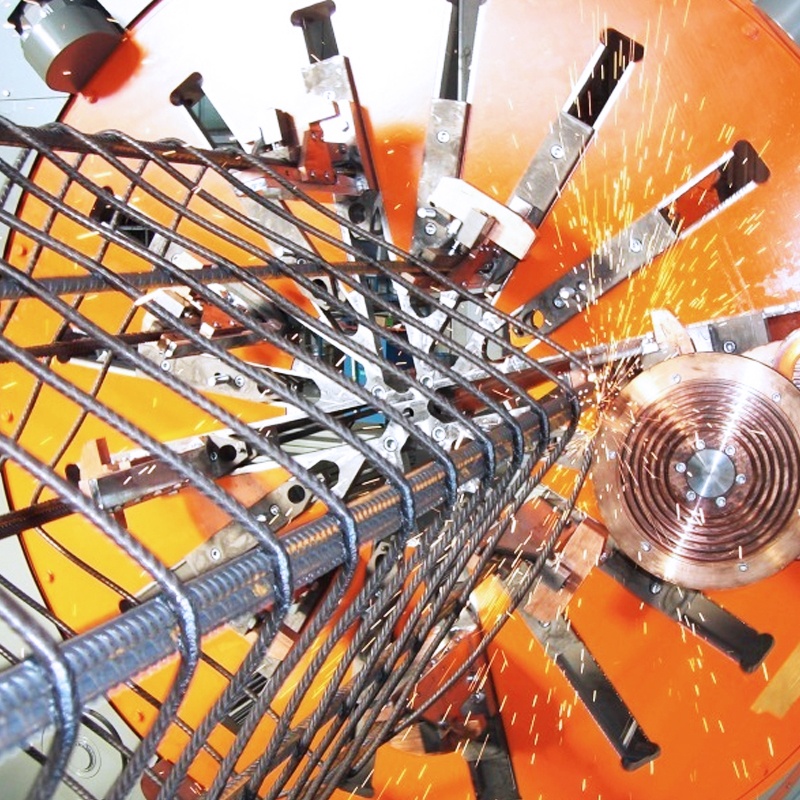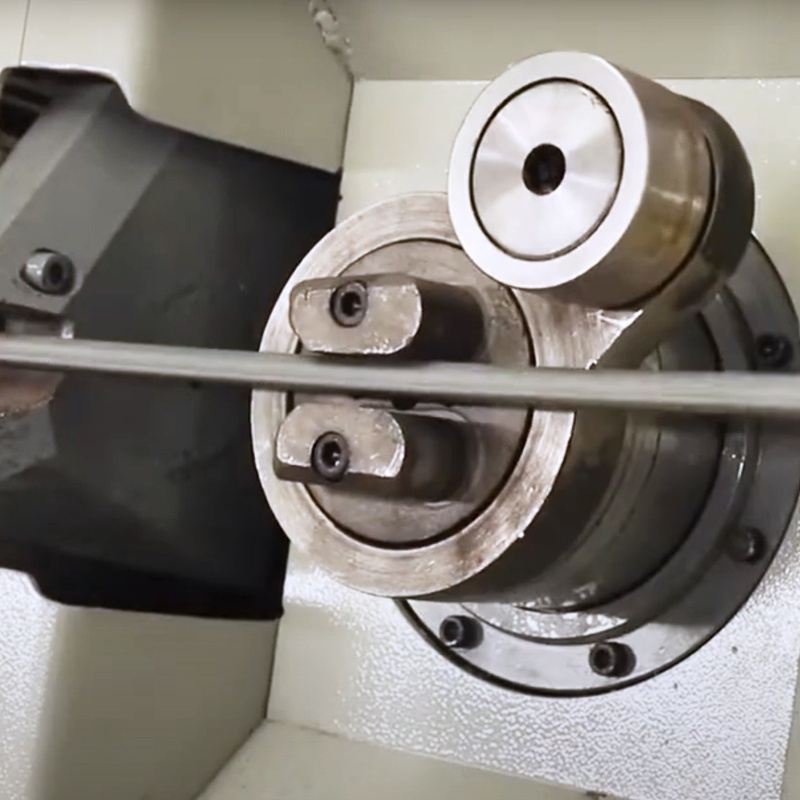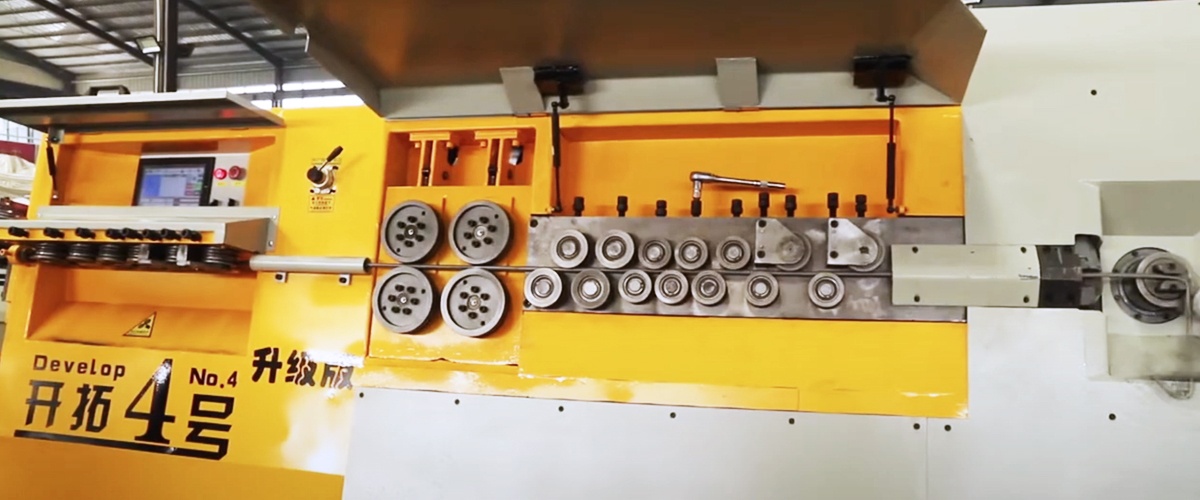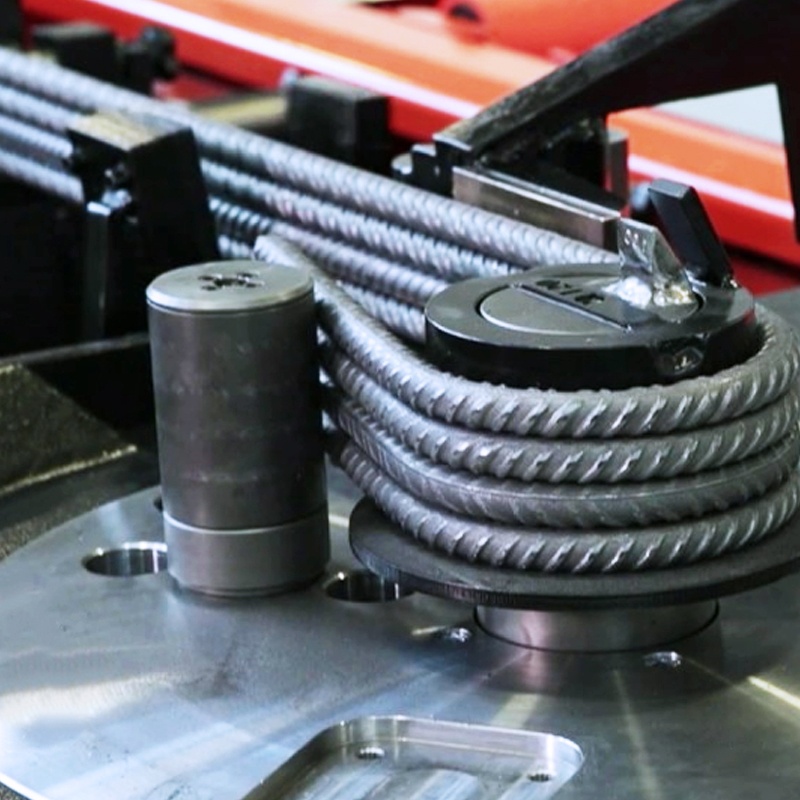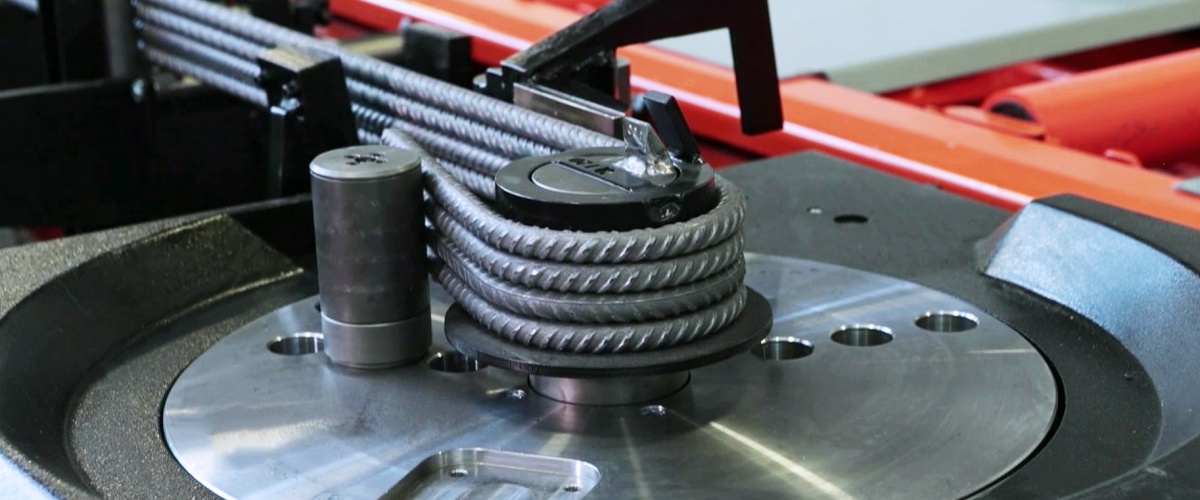The global construction industry relies on a diverse array of machinery to ensure efficiency, precision, and productivity. In this article, we’ll explore 14 common types of construction machines that are readily available on a global scale:
• Automatic stirrup bending machine
• Steel Pipe Polishing Machine
• Thread Rolling Machine
• Reducing Diameter Machine
• Straightening And Cutting Machine
• Wire Drawing Machine
• Manual Bending Machine And Cutting Machine
• Roll Cage Welding Machine
• Road Surface Construction Machine
• Transfer Pump
• Multi Blade Saw
• Fog Cannon Gun
• CNC Horizontal Lathe Machine
• Tower Crane
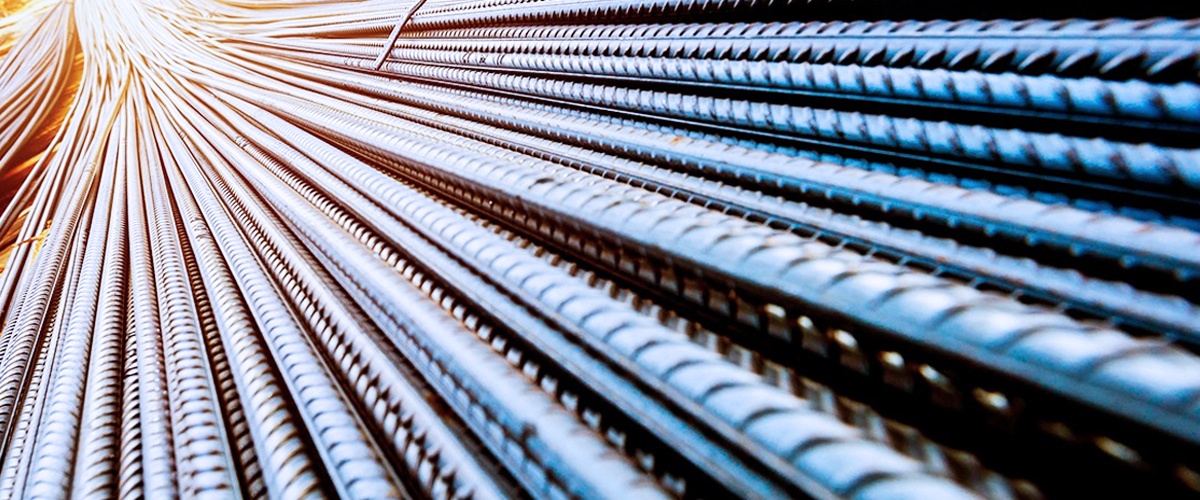
Automatic Stirrup Bending Machine:
Description: The Automatic Stirrup Bending Machine is a versatile equipment combining straightening, bending, and cutting functions. Widely used for processing steel into various shapes, it is renowned for efficiency, precise cutting, and rapid speed.
Steel Pipe Polishing Machine:
Description: This machine is designed for polishing steel pipes, ensuring a smooth and finished surface. It enhances the aesthetic appeal and quality of steel pipes used in construction projects.
Thread Rolling Machine:
Description: Thread Rolling Machines play a crucial role in processing threads on bolts, screws, and rods. They offer automatic feeding and radial or axial processing, contributing to efficient mass production.
Reducing Diameter Machine:
Description: The Reducing Diameter Machine is a non-cutting processing machinery that efficiently compresses circular steel and threaded parts, improving material density and tensile strength.
Straightening And Cutting Machine:
Description: Featuring preset, automatic counting, and steel guiding functions, this machine is ideal for straightening and cutting steel, ensuring high-quality results in construction projects.
Wire Drawing Machine:
Description: Wire Drawing Machines are essential for reducing the diameter of metal wires, creating a smoother and more uniform surface. They find applications in various construction and manufacturing processes.
Manual Bending Machine And Cutting Machine:
Description: These manual machines provide flexibility in bending and cutting steel, allowing for precise customization based on construction project requirements.
Roll Cage Welding Machine:
Description: Roll Cage Welding Machines automate the process of welding roll cages, enhancing efficiency and precision in the construction of structural frameworks.
Road Surface Construction Machine:
Description: Road Surface Construction Machines are specialized equipment used in the construction and maintenance of roads, ensuring a smooth and durable surface.
Transfer Pump:
Description: Transfer Pumps are vital for moving fluids, such as concrete, from one location to another on construction sites, facilitating various construction processes.
Multi Blade Saw:
Description: Multi Blade Saws are powerful cutting tools used for efficient and precise cutting of materials, including wood, metal, and concrete, on construction sites.
Fog Cannon Gun:
Description: Fog Cannon Guns are employed for dust suppression on construction sites, enhancing safety and creating a healthier working environment.
CNC Horizontal Lathe Machine:
Description: CNC Horizontal Lathe Machines offer precision machining for various components used in construction projects, contributing to the overall quality of construction materials.
Tower Crane:
Description: Tower Cranes are iconic in the construction industry, providing heavy lifting capabilities for the placement of materials at great heights, making them essential for large-scale construction projects.
Conclusion:
These 14 types of construction machines represent a fraction of the diverse equipment available globally. From bending and cutting to polishing, welding, and lifting, each plays a crucial role in different stages of construction, ensuring projects are completed with efficiency, precision, and safety. When it comes to purchasing, choose the right type based on your business needs.
